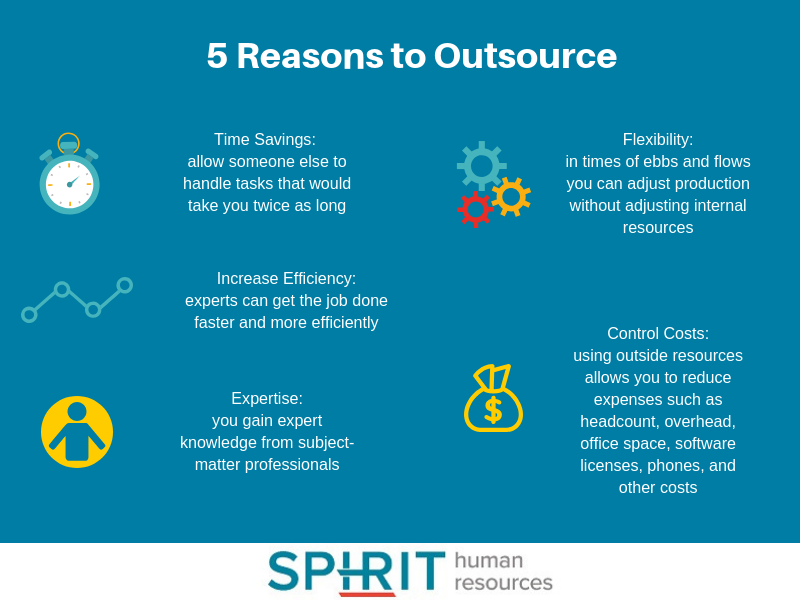5 Reasons to Outsource

What is Outsourcing?
Outsourcing is contracting with a third-party to handle functions that are not core to the business. Partnering with an outsourced provider is advantageous for several reasons. Let’s look at a few.
Top 5 Reasons to Outsource
- Control costs – using outside resources allows you to reduce expenses such as headcount, overhead, office space, software licenses, phones, and other costs.
- Expertise – you gain expert knowledge from subject-matter professionals.
- Time savings – allow someone else to handle tasks that would take you twice as long.
- Increase efficiency – experts can get the job done faster and more efficiently.
- Flexibility – in times of ebbs and flows you can adjust production without adjusting internal resources.
Examples
Outsourced functions can range from those done only occasionally, to tasks done on a daily, weekly or another regular basis. If the function is not core to your business, it can probably be outsourced. Some functions viable for outsourcing include:
IT services Call centers
Accounting Marketing
Payroll Lead generation
Recruiting Human resources
Warehousing Distribution
Set Goals
Successful outsourcing starts with clear goals and objectives. Once the business requirements are established, be diligent in vendor selection.
Understand the vendor’s capabilities, bandwidth, and expectations. Review the vendor contract for proper structure and clear deliverables.
Careful planning and implementation of outsourcing can reap long-term benefits.
Latest Blogs from Spirit HR
Your Quick Guide to E-Verify
The federal E-Verify program has been around in some form since 1996, and it’s only getting bigger. With Florida joining the program earlier this year, around half of all states now require E-Verify participation in some way. Enrolling in the program isn’t difficult,...
3 Reasons to Outsource Your HR
Navigating the complexities of HR management can be a daunting task for businesses, especially when streamlining operations and optimizing costs are crucial for success. Outsourcing your HR functions can be a game-changer, providing the breathing room you need as a...
3 Steps to Improve Health and Safety Compliance in Your Workplace
Health and safety are two terms that can seem tedious concerning the workplace, but ignoring them and the standards they entail could result in injury, illness or even death. Prevention and preparation are integral to a safe, happy and compliant organization. Here are...
